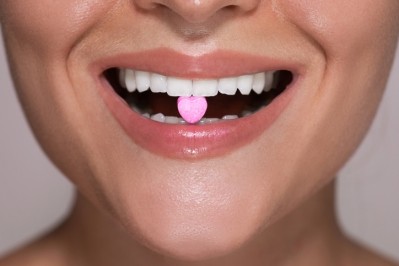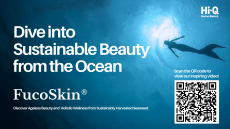Grape-derived skin supplement shows strong efficacy to lighten dark spots

Southwestern France-based Activ’Inside upcycles by-products of grapes from the Champagne region. The food-tech company says these are up to five times richer in beneficial and bioavailable monomers than other Vinifera varieties.
In 2022, the company introduced Belight3 an ingestible ingredient that targets skin hyperpigmentation, and it has just shared the results of its latest clinical study as it continues to focus on this key marker of aging skin.
“We know that there is a big market for skin brightening and whitening products and anti-dark spot products, notably in Asia,” said Ilona Gille, scientific marketing project manager at Activ’Inside.
"One of the key actions of this product is to target tyrosinease and inhibit its activity,” she explained.
Tyrosinase inhibitors such as this work by blocking the enzyme tyrosinase that is needed to produce the two kinds of melanin skin pigments: eumelanin and pheomelanin.
A market need for safer skin lightening alternatives
Gille highlighted that the skin lightning sector has an issue with illegally sold topical products that contain mercury, which is a neurotoxin, so there was a market need for safer innovations within this space.
Use of these toxic creams often results in skin rashes and discoloration, while long-term use can damage the nervous system and potentially harm the eyes, lungs, kidneys, digestive and immune system.
Causes of skin hyperpigmentation
When creating Belight3, Gille said the company’s R&D team first began by understanding the causes of skin hyperpigmentation, which involves many factors, including oxidative stress due to aging, as well as UV radiation, diet and pollution.
It then undertook a bibliographic screening of ingredients to find the most potent, research-backed ingredients that would target skin hyperpigmentation.
Based on this, Belight3 was formulated with four ingredients: grape monomers of flavanol, licorice extract, vitamin C and grape viniferin.
Consumer usage study: 85% reduction in tyrosinase activity
The company’s previous research includes an in-house in vitro study demonstrating an 85% reduction in tyrosinase activity.
The consumer usage study was carried out in France on Caucasian skin types, administering a 300 mg daily dose of Belight3 to 100 participants over a 60-day evaluation period and reporting a 30% reduction in dark spots related to age, 40% to sun exposure and 27% to pregnancy mask.
The open trial was conducted under dermatological control, with the dermatologist clinical scoring before and after use, and the results showed that Belight3’s formula worked within 11 days.
Clinical study in Thailand
This research in France was the “first proof of concept,” explained Gille, and the company recently published the results of a second study conducted at DermaProof Asia Co., a clinical trial center in Bangkok, Thailand.
The randomized, double-blind, placebo-controlled clinical trial involved 58 healthy Asian females and males between the ages of 45 and 65, with visible dark spots on the face and Fitzpatrick scale phototypes III to IV. Participants consumed 300 mg of Belight3 a day for 12 weeks and were evaluated through an objective assessment of both skin color and dark spots using validated tools.
Findings showed a 24.5% improvement in lighter and brighter skin and a 76.8% lightening of dark spots following 12 weeks of supplementation.
Awaiting publication of a clinical study in Italy
Gille shared that the company has also recently undertaken a clinical study in Italy to evaluate the efficacy of the formulation on Mediterranean skin types, but this will not be published until early 2025.
“All I can say is that we can now confirm the anti-dark spot effect on Caucasian skin types too,” she shared.
She added that the nutricosmetics market now “extends well beyond simple skin brightening” and that better aging (aka longevity) has become a key focus. As such, she said that the company is now concentrating on age-related dark spots and healthy skin aging.




























